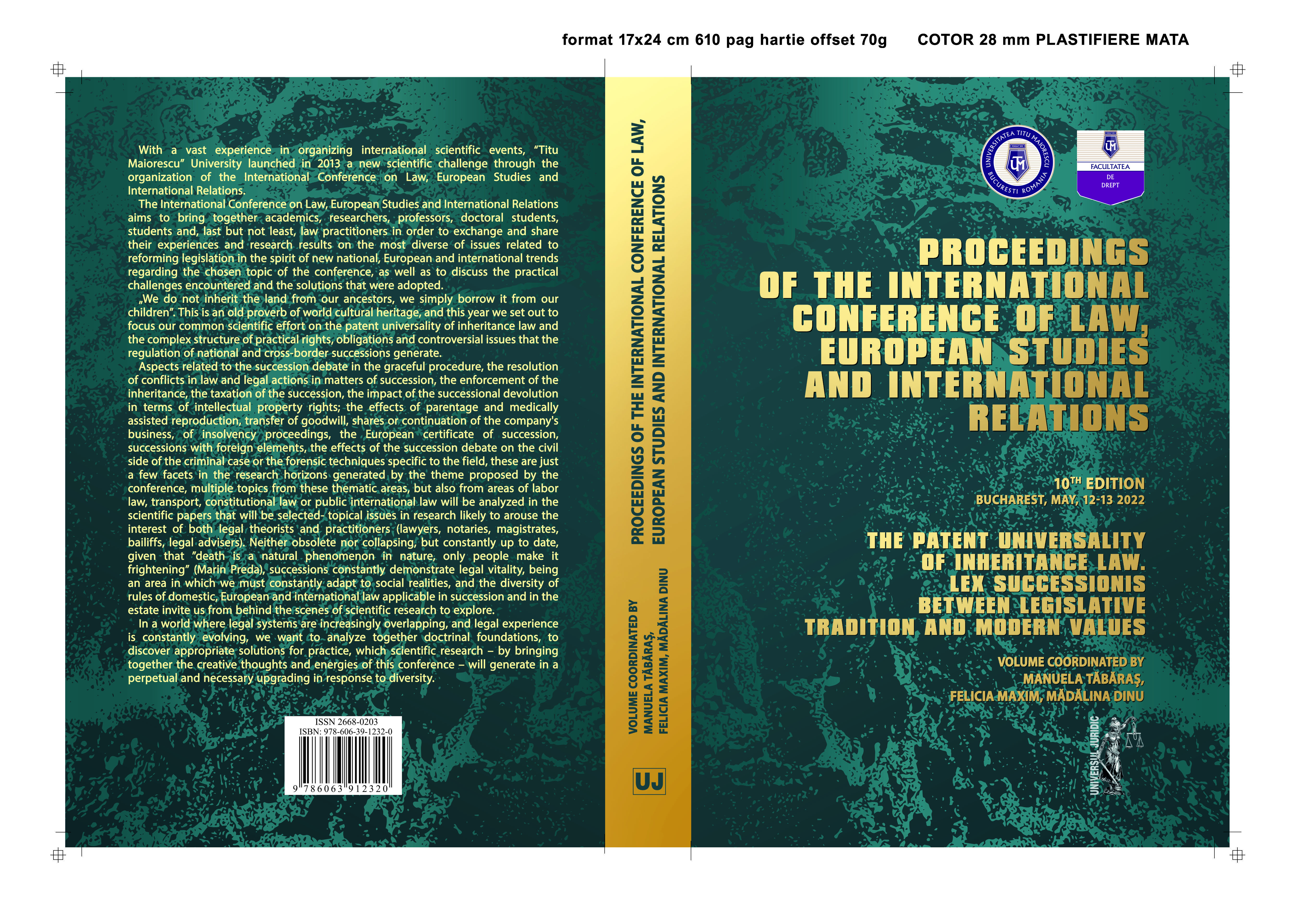THE CANONICAL PRINCIPLE OF APOSTOLIC SUCCESSION AND ECCLESIASTICAL POWER
THE CANONICAL PRINCIPLE OF APOSTOLIC SUCCESSION AND ECCLESIASTICAL POWER
Author(s): Alina-Monica AxenteSubject(s): Law, Constitution, Jurisprudence, Civil Law
Published by: Universul Juridic
Keywords: will; testamentary inheritance; testamentary vocation;
Summary/Abstract: Power is the word that best characterizes the Roman people. From whatever perspective the analysis is carried out, whether historical or legal, the construction of all Roman social relations, from family to patrimonial or administrative ones, gravitates around the concept of power. The manifestation of power was materialized in all spheres, including in the average Roman's relationship with death. Thus, just as in opposition to a possible fall from grace, death took the form of a voluntary act, so the will mortis causa of the owner of an estate took the form of a testament. As a result, the testamentary inheritance was also seen as a testimony of the power exercised by the pater familias even after death, since by testament he could dispose of his patrimony according to his own will, having the freedom to favor by institution one or more heirs, to the detriment of others, who would have had the capacity of successors according to the legal inheritance. Since they did not shy away from meeting an honorable death, the Romans paid special attention to perfecting the institution of the testament so that it would synchronize with the pulsations of social reality. This article aims to reveal precisely the seriousness with which the Romans treated the institution of testamentary inheritance.
Journal: Conferința Internațională de Drept, Studii Europene și Relații Internaționale
- Issue Year: XII/2023
- Issue No: XII
- Page Range: 292-298
- Page Count: 7
- Language: English

